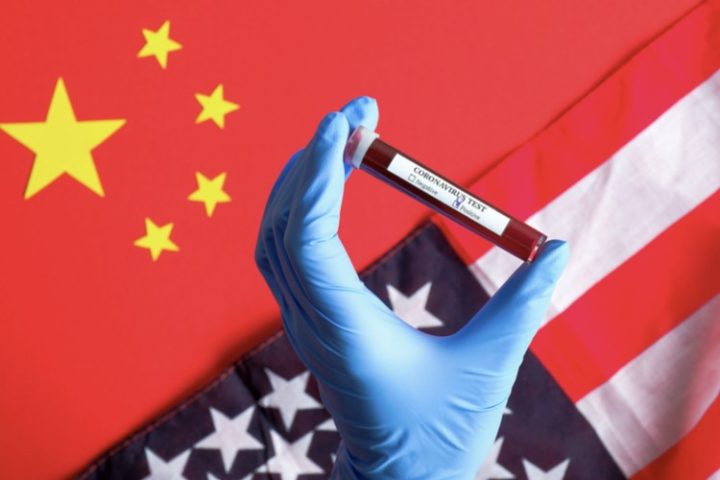
Mahlet Mesfin, who sits on Joe Biden’s transition review team, has an interesting note on her resume: She advocated for the United States and China to collaborate on scientific endeavors, including “gene editing,” in response to the coronavirus outbreak.
Mesfin is an alum of the Obama administration’s National Security and International Affairs branch of the Office of Science and Technology Policy and served as a visiting scholar at the University of Pennsylvania’s Biden Center for Diplomacy and Global Engagement.
She now is a member of the Biden transition team, heading the Art and Humanities agency review team.
But in an op-ed entitled “Why the Nobel Prize shows the US and China need to work together on gene editing,” Mesfin advocated for closer scientific ties between the two superpowers.
The piece heavily focuses on the American and Chinese responses to COVID-19. In her writing, Mesfin does not assign any blame to the Chinese Communist Party (CCP) for unleashing the virus on the world in the first place. Rather, she lays on the blame on “tense bilateral relations” and “politized [sic] claims over the origin and spread of the coronavirus.”
The remarks are an allusion to arguments from President Trump and Republicans that China should be held accountable for the damage done to the rest of the world on both a health and economic level; after all, it is all but certain that the virus escaped from China’s Institute of Virology.
But for Mesfin, these arguments “damper prospects of cooperation, especially in areas of biomedical research.” She glosses over the fact that the CCP maintains a concerted and demonstrable effort to poach American science secrets, researchers, and intellectual property.
U.S. military officials have described it as a case of China having an “expansive approach to stealing technology and intellectual property” to “advance its military and economic power, and to achieve global scientific dominance.”
Mesfin advanced similar talking points in another op-ed entitled “It Takes a World to End a Pandemic.” That piece was published in Foreign Affairs, the flagship publication of the Council on Foreign Relations, one of the major insider organizations used to recruit promising individuals amenable to the globalist-socialist cause and then promote their ascendance to positions of influence in government, business, and academia.
At one point, Mesfin appeared to praise China as being transparent in its handling of COVID-19, writing that “in December, a group of Chinese researchers published the genetic sequence of the new virus online” and the “data allowed the international scientific community to start developing diagnostic tests and explore treatment options.”
The truth, however, is that even in late December, CCP officials were silencing and intimidating doctors who attempted to report on the disease.
Additionally, Mesfin bemoans the fact that the “pandemic comes at a time of rising nationalism around the world,” noting that “insularity and xenophobia cannot possibly produce an effective response to this global crisis.”
She even takes issue with U.S. concerns about Chinese “espionage and technology transfer” that “have quelled U.S.-Chinese scientific cooperation,” insisting that American officials have limited “high-level engagement, as evidenced by the fact that the OSTP did not include Chinese officials in its discussions with foreign counterparts”:
Tensions between China and the United States further threaten to dampen progress on coronavirus research. In recent years, U.S. concerns about Chinese espionage and technology transfer have quelled U.S.-Chinese scientific cooperation, as demonstrated by the prosecution or firing of top U.S. academics who allegedly covertly participated in programs to develop China’s scientific enterprise. These tensions also limit high-level engagement, as evidenced by the fact that the OSTP did not include Chinese officials in its discussions with foreign counterparts.
Not surprisingly, Mesfin in 2015 and 2020 spoke at events organized by the U.S.-China Business Council, which calls for closer economic ties between the two nations. The most recent event featured as speaker Ambassador Huang Ping, the consul-general of the Chinese Communist Party’s New York Consulate, who delivered the opening remarks for the symposium.
The New American has long documented the Biden family’s Chinese business dealings. Americans should be concerned that the man who may ultimately sit in the White House formulating foreign policy (should the Trump team not succeed in prevailing with its effort to reverse the effects of voter fraud on the election) is not only alarmingly close to our country’s chief rival, but has surrounded himself with advisors who are China fanatics.




